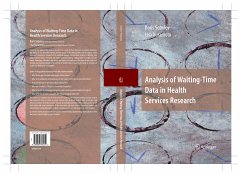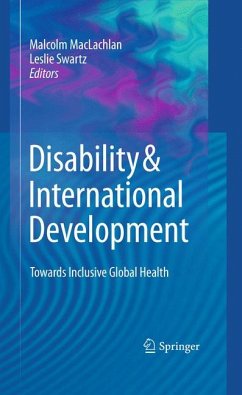
Assessing Race, Ethnicity and Gender in Health (eBook, PDF)
Versandkostenfrei!
Sofort per Download lieferbar
40,95 €
inkl. MwSt.
Weitere Ausgaben:

PAYBACK Punkte
20 °P sammeln!
This book deals specifically with the historical basis for use of terms in race, gender, ethnicity, sex and sexual orientation. It brings much needed clarity to the debate by identifying the ethical issues as well as the technical challenges inherent in measuring these elusive concepts. The author expands on her work begun in Gender, Ethnicity, and Health Research by paralleling the evolution of racial and sexual categories with the development of health research. Her review of the literature clearly explains when and why the use of classification systems may be both clinically and morally app...
This book deals specifically with the historical basis for use of terms in race, gender, ethnicity, sex and sexual orientation. It brings much needed clarity to the debate by identifying the ethical issues as well as the technical challenges inherent in measuring these elusive concepts. The author expands on her work begun in Gender, Ethnicity, and Health Research by paralleling the evolution of racial and sexual categories with the development of health research. Her review of the literature clearly explains when and why the use of classification systems may be both clinically and morally appropriate. In addition, she provides a salient guide to assessment tools currently used in measuring racial and sexual constructs, identity, and experience. This book's usefulness is not limited to the research community. Physicians, therapists, social workers, and sociologists will find this clear-minded volume an important source of instruments - and insights.
Dieser Download kann aus rechtlichen Gründen nur mit Rechnungsadresse in A, B, BG, CY, CZ, D, DK, EW, E, FIN, F, GR, HR, H, IRL, I, LT, L, LR, M, NL, PL, P, R, S, SLO, SK ausgeliefert werden.












